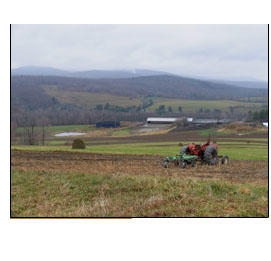 |
 |
About AgComs: History "Since Colonial times, Massachusetts has held fast to its cherished legacy as an agricultural state. This traditional image has paled in the minds of many, however, with ever-increasing commercial and residential development. In recent years, farmers feeling the pressures of this development, higher production costs, and a shrinking portion of the consumer dollar have sold their farms or instituted changes of their own to make the farm more viable. The state’s strong economy and proximity to large population centers exerts pressure to develop farmland for alternative uses. "* Agriculture once had a strong voice in municipal government. Over time, agriculture’s voice in local government and visibility in the community has diminished. Recently, farmland preservation, agricultural economic development, rural character and open space retention have emerged as high priorities in communities throughout the Commonwealth. Farmers, municipal officials, and residents
have recognized that by organizing an Agricultural Commission a voice is
returned to farmers within government. In the year 2001 there were six AgComs in the Commonwealth, today there are over 100. AgComs are organizing and working hard to:
* Agriculture’s Hold on the Commonwealth, University of Massachusetts Donahue Center, November 2000
|
||||
|
|||||